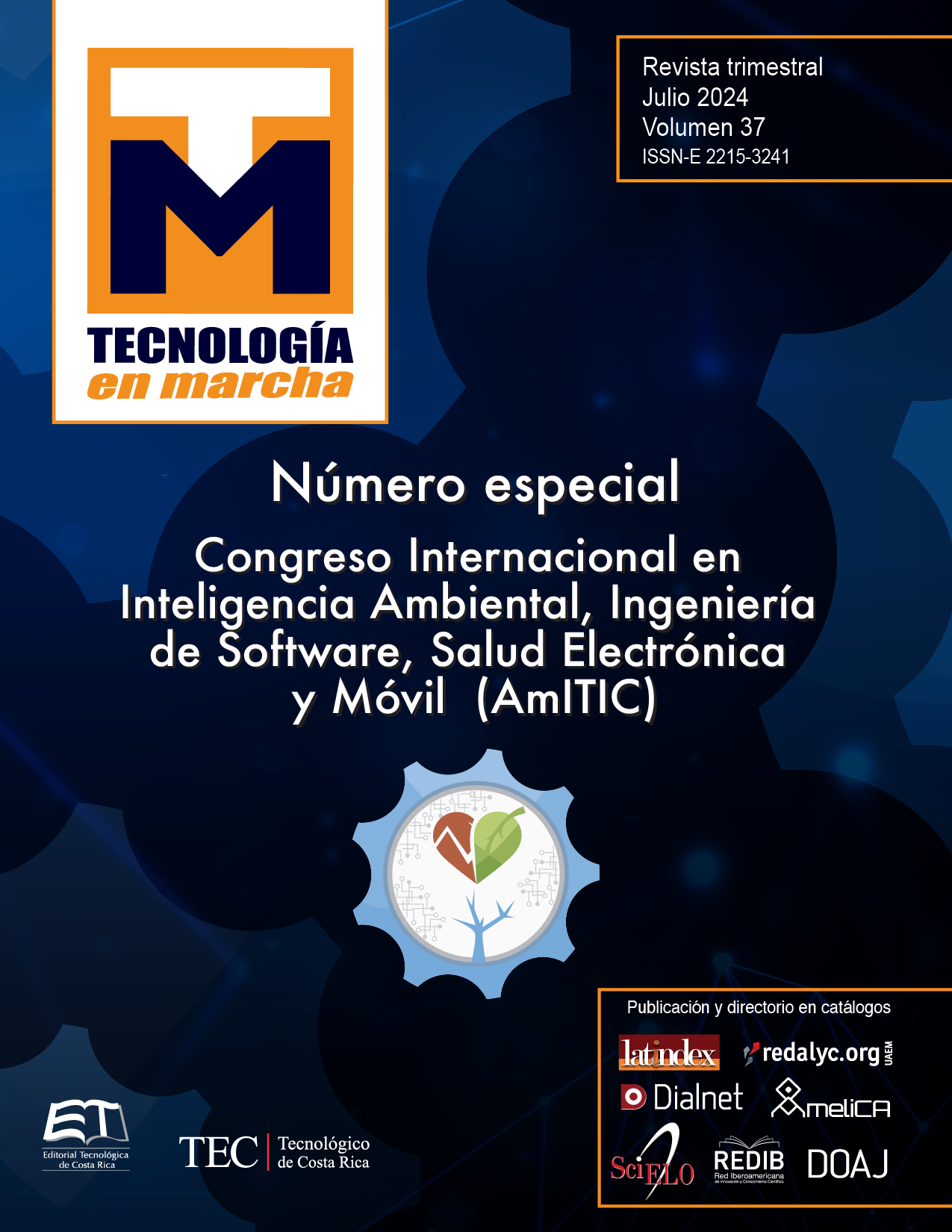Prototype of a virtual assistant for stress diagnosis using Artificial Intelligence
Main Article Content
Abstract
This project aims to develop an intelligent virtual assistant of the Chatbot type to detect the level of stress, which works as a conversation based on questions and answers, that is, a bot-human-bot interaction. To this end, a descriptive and applied research (R+D) was carried out. The hypothetical- deductive scientific method was use based on the assumption that the level of a person’s stress symptoms is detect with the help of a virtual assistant. First, a study was carried out to know the symptoms of the disease, through bibliographic review and interview with specialists in psychology, and then a technological development was carried out using the SCRUM methodology considering three events: Sprint Planning, Daily Scrum and Sprint Review. The development tool used was Watson Assistant, in which created a prototype of a Chatbot capable of detecting whether a person suffers from stress or not, using the instrument published by the Headington Institute. A pilot test was carried out with students from the Faculty of Computational System of the Technological University of Panama and Faculty of medicine of the University of Panama that helped train the Chatbot, and with the help of the psychology specialists, it was validated if the answers given by the Chabot are correct.
Article Details

This work is licensed under a Creative Commons Attribution-NonCommercial-NoDerivatives 4.0 International License.
Los autores conservan los derechos de autor y ceden a la revista el derecho de la primera publicación y pueda editarlo, reproducirlo, distribuirlo, exhibirlo y comunicarlo en el país y en el extranjero mediante medios impresos y electrónicos. Asimismo, asumen el compromiso sobre cualquier litigio o reclamación relacionada con derechos de propiedad intelectual, exonerando de responsabilidad a la Editorial Tecnológica de Costa Rica. Además, se establece que los autores pueden realizar otros acuerdos contractuales independientes y adicionales para la distribución no exclusiva de la versión del artículo publicado en esta revista (p. ej., incluirlo en un repositorio institucional o publicarlo en un libro) siempre que indiquen claramente que el trabajo se publicó por primera vez en esta revista.
References
Boden, M. A. (2017). Inteligencia Artificial. Turner.
Pujol, G. (2020, octubre 18). Filosofía e inteligencia artificial. Catalunya Plural. https://catalunyaplural.cat/es/filosofia-e-inteligencia-artificial/
IBM. (s. f.). IBM watsonx Assistant Virtual Agent. Recuperado 27 de noviembre de 2023, de https://www.ibm.com/products/watsonx-assistant
Cortés Loboa, J. E. (2019). Chatbots para apoyar la detección de síntomas de trastornos psiquiátricos [Thesis, Universidad Santiago de Cali]. En Repositorio Institucional USC. http://localhost:8080/xmlui/handle/20.500.12421/4542
Cajamar, E. B. G. (2019, enero 10). Qué son los Asistentes Virtuales Inteligentes. Blog del Grupo Cajamar. https://blog.grupocajamar.com/que-son-los-asistentes-virtuales-inteligentes/
Pérez-Balaguer, A., Sanz-Aranguez-Ávila, B., Gil-Benito, E., Solari-Heresmann, L. M., del Sol-Calderón, P., Gayubo-Moreo, L., & de Arce-Cordón, R. (2023). ¿La pandemia de COVID-19 condiciona el contenido delirante de los pacientes con psicosis? Un estudio observacional. Revista Colombiana de Psiquiatría, 52(4), 297-304. https://doi.org/10.1016/j.rcp.2021.07.004
Ozamiz-Etxebarria, N., Dosil-Santamaria, M., Picaza-Gorrochategui, M., & Idoiaga-Mondragon, N. (2020). Niveles de estrés, ansiedad y depresión en la primera fase del brote del COVID-19 en una muestra recogida en el norte de España. Cadernos de Saúde Pública, 36(4), e00054020. https://doi.org/10.1590/0102-311x00054020
Ulloa, L. C. Á. (2020). Efectos en la salud mental durante la pandemia del coronavirus. Derecho y Realidad, 18(36), Article 36. https://doi.org/10.19053/16923936.v18.n36.2020.12164
Cadavid, D. A. (2021). Situaciones que generan stress en medio de la pandemia covid 19 2020 en el personal Docente en la Escuela Nacional de criminalística ENAC. https://repositorio.unitec.edu.co/handle/20.500.12962/767
D. Cancer, I. N. (2011, febrero 2). Definición de estrés—Diccionario de cáncer del NCI - NCI (nciglobal,ncienterprise) [nciAppModulePage]. https://www.cancer.gov/espanol/publicaciones/diccionarios/diccionario-cancer/def/estres
Institute, H. (s. f.). Global Aid | Disaster Relief | Community Response. Headington Institute. Recuperado 29 de noviembre de 2023, de https://www.headington-institute.org/
García-Reina, L. F. (2018). Asistente virtual de tipo ChatBot. https://repository.ucatolica.edu.co/entities/publication/16e194ec-44d2-40c7-abf0-554958b9652e
Oliveira, J. da S., Espíndola, D. B., Barwaldt, R., Ribeiro, L. M., & Pias, M. (2019). IBM Watson Application as FAQ Assistant about Moodle. 2019 IEEE Frontiers in Education Conference (FIE), 1-8. https://doi.org/10.1109/FIE43999.2019.9028667
Mahnič, V., & Hovelja, T. (2012). On using planning poker for estimating user stories. Journal of Systems and Software, 85(9), 2086-2095. https://doi.org/10.1016/j.jss.2012.04.005
Deloitte. (s. f.). Las 5 ceremonias Scrum: Claves para la gestión de procesos. Deloitte Spain. Recuperado 27 de noviembre de 2023, de https://www2.deloitte.com/es/es/pages/technology/articles/ceremonias-scrum.html

